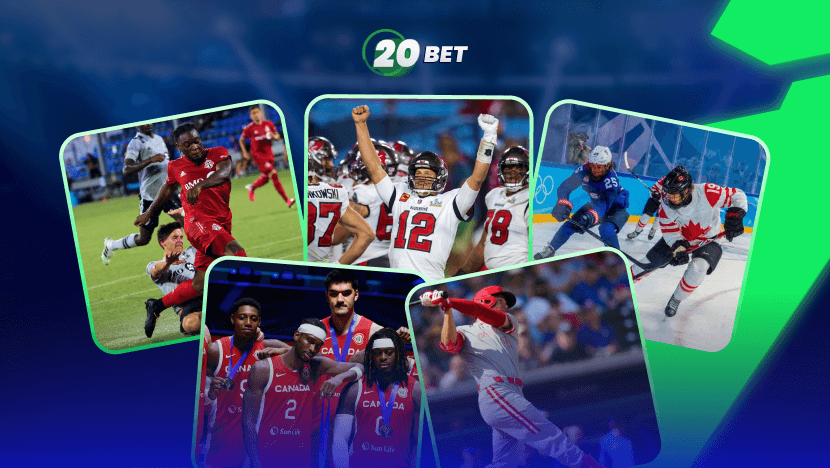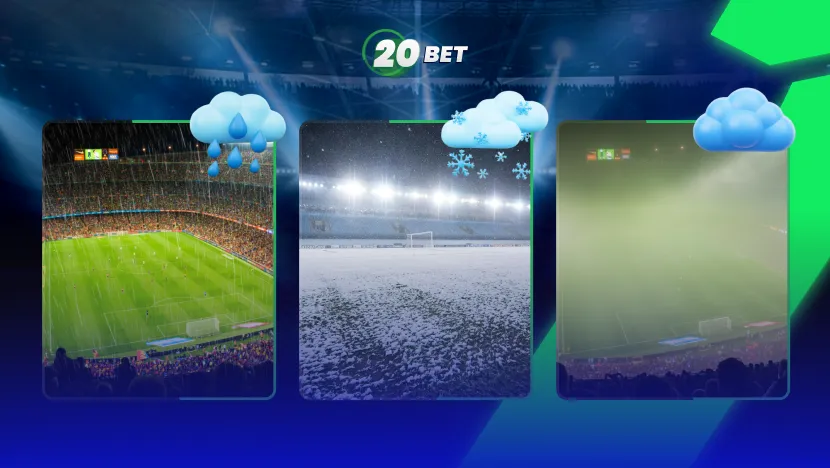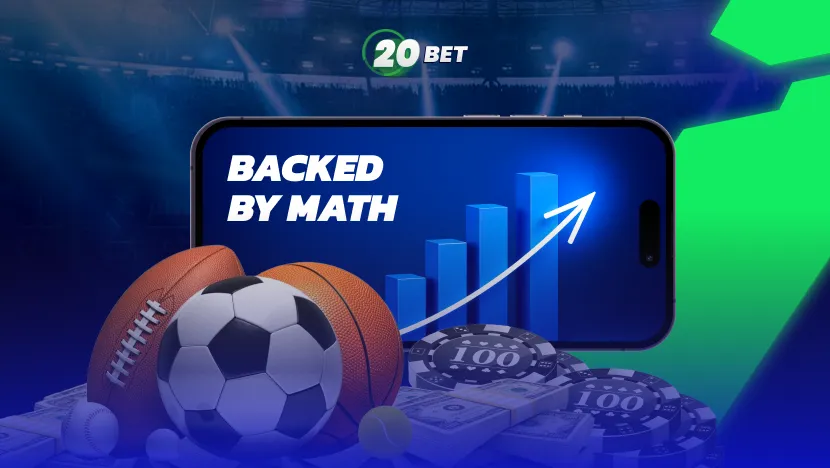Sports bettors want clear answers: Is an AI soccer predictions model worth trusting, or should you still follow human experts? We’ve reviewed recent head-to-head studies to determine which side has the upper hand.
Soccer Prediction Factors
A match result rarely hinges on one thing. Most soccer predictions, human or machine, balance six factors:
| Factor | Why it affects the outcome |
| Team form | Winning runs can boost confidence; losing streaks do the opposite. |
| Tactics | A high press can create more chances; a deep block usually limits them. |
| Injuries & suspensions | Losing a key striker often knocks goals off any score predictions. |
| Travel & weather | Long flights or heavy rain tend to drain players’ energy and slow play. |
| Crowd & venue | Home fans can lift a team’s spirits, whereas empty stands dampen them. |
| Market numbers | Odds, spreads, and popular parlays reveal where the money and risk are moving. |
Good models mix hard numbers (shots, xG, player fitness) with softer signs (morale, coaching changes), shaping the chances and sizes of your possible payouts, profits, and variance.
How AI Helps With Soccer Predictions
Modern engines perform tasks that were once handled by large analyst teams. A typical system:
- Tracks myriads of data points – goals, xG, pressing, pass angles, referee strictness – from the EPL, Serie A, La Liga, Ligue 1, and Bundesliga.
- Trains specialist models – Kickoff.ai uses the Kickscore, while Stats Perform’s Opta runs eight core models.
- Runs large-scale simulations – Opta simulated Euro 2024 10,000 times to determine pre-tournament odds.
- Updates in real time – Opta’s live feed refreshes probabilities within minutes of late injuries, whereas Kickoff.ai adjusts after each match week, keeping AI Premier League predictions current.
- Adds tactical insight – Google DeepMind’s TacticAI, trained on a dataset of 7,176 Premier League corner kicks, makes set-piece suggestions. In a blind test, soccer experts from Liverpool FC preferred TacticAI’s recommendations 90% of the time, according to a Nature Communications paper.
Today’s soccer results predictors can process more metrics than any person ever could, including humidity effects, mid-week travel fatigue, and referee variance. That edge is evident in live spreads and in-play parlays.
The Human Participants
Computers are fast, but fans still love a head-to-head test.
| Contest | Format | Result |
| Yahoo Sports’ AI vs Humans 2023/24 | Weekly picks, three points for a perfect score, one for a correct outcome | AI made 249 correct picks, while fans made 232. The AI Premier League predictions model won by 17 picks. |
| Fan panel vs Kickoff.ai (2023/24) | Pre-season table forecast | AI correctly predicted 3 out of 4 Champions League spots and the title winner; fans got 2 right. |
| Medium study: OPTA supercomputer vs ESPN pundits (Euro 2024) | Knockout-stage projections | The OPTA model led the averages, but two pundits outperformed it individually. |
(Disclaimer: Data based on sources including Yahoo Sports, Opta, and publicly available tournament analyses.)
Who Predicted Better?
The OPTA supercomputer had higher accuracy scores overall. However, individual experts occasionally outperformed it, demonstrating that human analysts can still come out on top.
Key Takeaways: Where AI Excelled and Failed
AI thrives over the course of a 38-game league season, where big data helps smooth out luck. In knockout competitions, sharp analysts with up-to-date team insights can beat the code. It’s better to treat the computer as an extra voice, not the only one.
Strengths of AI
- Scans huge data sets fast; no fatigue.
- Catches subtle signs that most fans miss, such as home-field humidity and a referee’s card habits.
- Updates in seconds, so live in-play spreads and parlays reflect fresh info.
Weaknesses
- Late injuries or sudden loss of focus by a favorite can still wreck some score predictions.
- Black-box math: It can be hard to explain a bad miss.
- Results can still swing: Euro 2024 proved that experts can top the model in the short run.
Successful Examples of AI Soccer Predictions
In 2018, a FIFA 18 game simulation ran the entire World Cup and correctly picked France to win. That simple soccer match predictor even supplied match-by-match score forecasts.
Ahead of the Qatar 2022 World Cup, the OPTA supercomputer ran one million simulations and identified Argentina as the most likely winner. Messi’s team ended up lifting the cup.
Big events still throw curves. Before Euro 2020, Stats Perform gave Italy just a 7.6% chance of taking the trophy, but the team went on to win it anyway – a reminder that odds show likelihood, not fate.
League tests look solid, too. In August 2023, Kickoff.ai predicted that Manchester City would finish first in the Premier League and nailed three of the final top four. Over 38 games, its forecasts beat most pundits.
Tools To Try
| Tool | What it does | Why use it |
| OPTA Supercomputer | Runs 10,000 simulations for each big tournament | Lines up with EPL and La Liga markets on 20Bet |
| DeepMind xG Engine | Tracks pressing, shot quality, and passing lanes | Great for prop bets on player outcomes |
(Disclaimer: Tool descriptions based on official releases and verified industry sources.)
Final Verdict: AI Is Powerful but Not Unbeatable
The numbers show that AI often outperforms humans, especially over long seasons, yet sharp analysts still win short-run challenges. Treat every soccer predictions feed, human or machine, as one more insight. Blend it with your own experience, bankroll planning, and matchday news to stay ahead of the competition.
Responsible Gambling
Bet for the fun and excitement, not just profits. Set limits, track your play, and take a step back if you find yourself chasing losses. 20Bet supports self-exclusion tools and helplines. Gambling involves risk, so only wager what you can afford to lose.
FAQ
Can AI accurately predict soccer matches?









